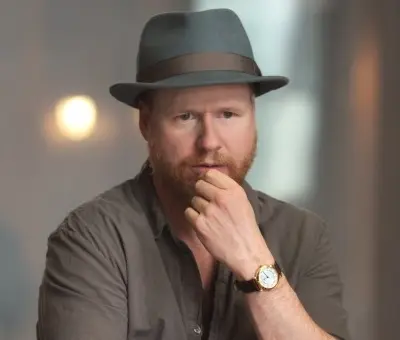Joss Whedon seems to see himself like a flawed hero
-

The disgraced Buffy the Vampire Slayer and Angel creator's New York magazine cover story profile suggests that he sees himself as the kind of flawed hero whose stories he made his name telling. The "profile illustrates, in despairing detail, a man who too often didn’t rise to the moment," says Tim Grierson. "I’ve known enough people who worked on sets to appreciate that they can be challenging, volatile crucibles, places where stress and ego combine to forge rude and erratic behavior. But the stories recounted about Whedon threatening to have individuals blackballed — or, worse, allegedly hurting a costume designer by digging his nails into her arm while he was making a point — just seem egregious, a pattern of a**holish conduct by someone who couldn’t handle stress and took it out on those around him. In the article, Whedon owns up, somewhat, but then insists he’s been misunderstood, claiming that his detractors have used 'every weaponizable word of the modern era to make it seem like I was an abusive monster. I think I’m one of the nicer showrunners that’s ever been.' It’s a shocking statement but, weirdly, it does square with a classic superhero narrative in which the good guy is shunned by the populace, who have no idea what he’s done for them. Perhaps the most famous example of this is in The Dark Knight, a movie Whedon had nothing to do with. That film concludes with Batman letting the world think he’s the true villain so that Harvey Dent’s sterling image won’t be tarnished and the citizens of Gotham can still believe in something. It’s an act of self-sacrifice that’s noble and tragic, but also speaks to something deeply self-pitying about our conception of heroes: I’m doing all this good in the world, and you don’t even appreciate it. That seems to be the mindset Whedon carries into these interviews with (New York's Lila) Shapiro, along with an eye toward a redemption arc, another thing we love from our fictional heroes...The (New York) article is a warning about our willingness to be seduced by people who seem to represent something honorable or enlightened. All those Buffy fans saw in Whedon a guy who was like them, heartened by the fact that he reflected their passions and, in turn, made them seem cool. Feminists saw an ally — a powerful man in Hollywood interested in telling women’s stories. And when we find heroes, we want them to stay that way — so much so that it’s hard to accept any evidence to the contrary. We don’t mind if Iron Man or Buffy is flawed, just so long as we know that, in the end, they’ll do the right thing. But Whedon, from all appearances, didn’t do the right thing — and he still hasn’t."
TOPICS: Joss Whedon, Angel, Buffy the Vampire Slayer
More Joss Whedon on Primetimer:- Nathan Fillion Defends Joss Whedon: 'I Would Work With Him Again in a Second'
- New Buffy the Vampire Slayer book delves into the abuse allegations against Joss Whedon with cast and crew
- Buffy the Vampire Slayer turns 25: The teen drama's legacy endures despite Joss Whedon
- Joss Whedon and Jeff Garlin deserve credit for being candid about their workplace misconduct
